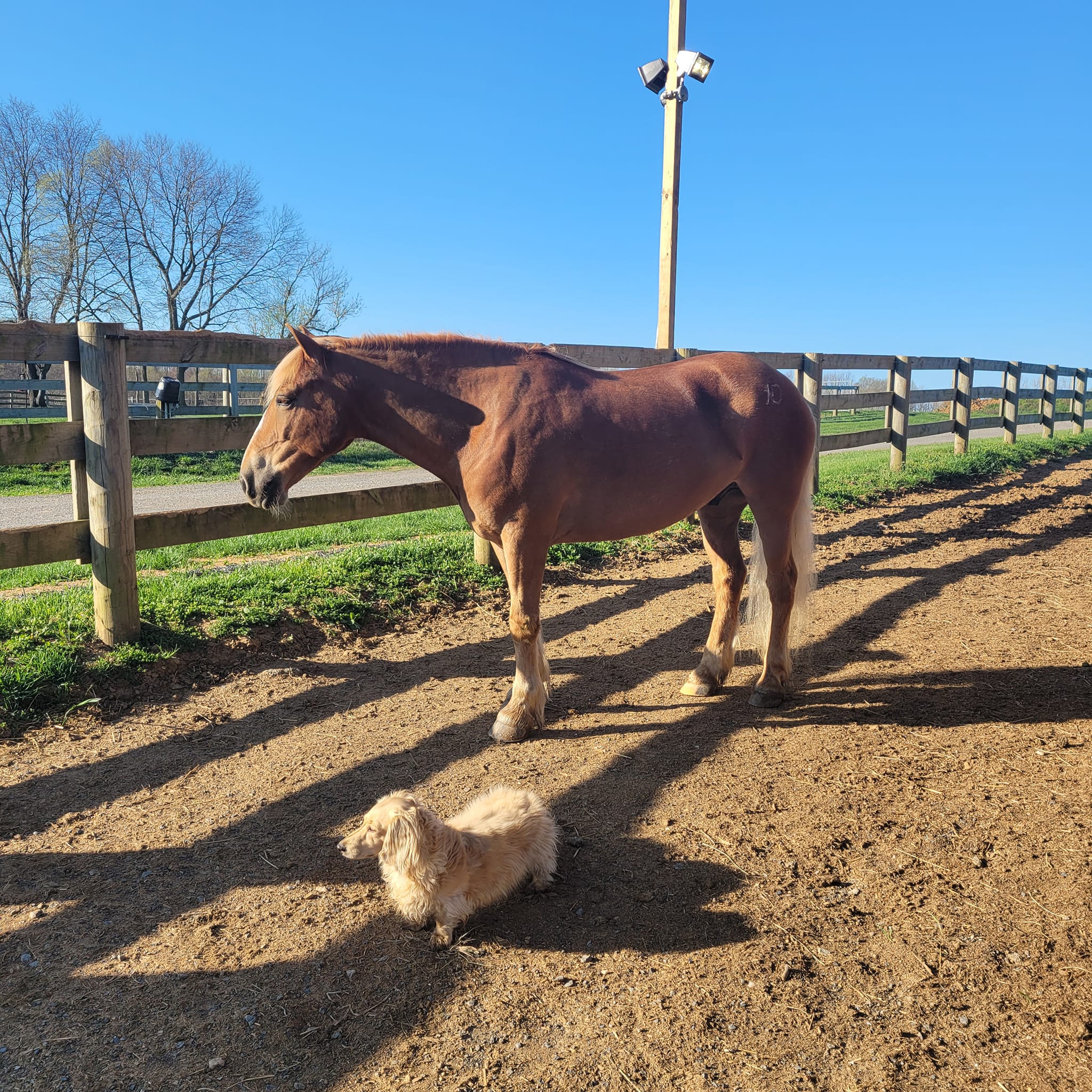Understanding Service Dogs and Their Roles
Service dogs are more than just man’s best friend. They’re highly trained animals that provide invaluable support to their owners, assisting with a variety of medical conditions.
You might be familiar with mobility assistance dogs, who lend a helping paw to those struggling physically. Their tasks range from fetching items, opening doors, or even pulling wheelchairs.
Beyond physical aid though, service dogs also play an essential role in mental health support.
For instance, they help veterans cope after serving our country. Moving on the spectrum of canine companionship is another category: emotional support animals.
Unlike service dogs, they don’t necessarily undergo rigorous training but offer comfort during stressful situations.
Then there are seizure alert canines – these intelligent creatures can detect seizures before they occur. The diversity doesn’t end here; we have therapy pooches providing love at hospitals and nursing homes too.
Isn’t it fascinating how one species serves humanity in so many ways? Now let’s take this discussion closer home – ever thought about your dachshund playing any such roles? Let’s explore.
The Dachshund Breed – A Close Look
Let’s explore the captivating realm of dachshunds, a type recognized for their peculiar features and allure.
These dogs are smart as whips (yes, you heard it right: dachshunds are smart.), but they can also be quite stubborn at times (darn those cute little faces).
This combination of intelligence and tenacity is what makes them such interesting pets to have around.

Size Matters – The Challenges of a Small Service Dog
You might think training small service dogs like dachshunds would be easier because…well, they’re smaller.
But don’t let their size fool you; there can be some challenges in store when it comes to service work with this dog breed.
While these pooches may not reach your kitchen counter or open heavy doors due to their short stature, they make up for it with sheer determination.
Next up, we’ll compare our petite friends here against other popular breeds used as service animals. Golden retrievers, anyone?
Can Dachshunds Be Good Service Dogs?
You’re probably wondering, “Are dachshunds good service dogs?”
Yes, dachshunds can make excellent service dogs.
Dachshunds are more than just adorable buddies; they’re smart and able to adjust, making them great contenders for specific service tasks.
Beyond being just cute companions, these small wonders can be trained to perform tasks like alerting their owners to specific sounds or retrieving objects within reach.
Training a Dachshund Puppy for Service Work
If you’ve got yourself an adorable little dachshund puppy, training it as a future star in the world of working dogs might seem daunting at first glance. But fear not. With patience and dedication, this task becomes more manageable than you’d think.
Remember: professional trainers are crucial when trying to turn your independent-minded sausage dog into an obedient helper.
Let’s explore further into what our canine companions can do to be of assistance.
What Tasks Can a Dachshund Perform as a Service Dog?
Despite their diminutive size, dachshunds can be surprisingly adept at performing service work.
Their intelligence and trainable nature make them capable of performing an array of tasks that provide services to individuals with various medical conditions.
Deep Pressure Therapy
Due to their compact size and weight, dachshunds are excellent at providing deep pressure therapy.
This form of therapy helps alleviate anxiety or panic attacks by applying gentle yet firm body pressure on the handler’s lap or chest area.
Danger Notification
Dachsies have sharp senses which enable them in detecting danger early on – be it from intruders or environmental hazards like smoke alarms going off.
Object Retrieval
A well-trained dachshund is adept at retrieving dropped items for handlers who may struggle with mobility issues due to physical disabilities or age-related concerns.
Mental Health Support Dogs
including those adorable doxies, can also offer companionship & comfort for people dealing with mental health disorders such as depression.
Remember though: every dog breed has its strengths & limitations.
Before deciding if a Dachsie is right for you as your next service animal companion – consider reaching out to professional trainers first.
They will help ensure that both you and your future furry friend understand each other’s needs effectively.
And remember. It takes time but patience pays off.
Top 10 Places to Get a Dachshund Service Dog
If you’re considering a dachshund as your service dog, there are some things to keep in mind.
But don’t worry, it’s not rocket science. Here are the top 10 places to adopt a Dachshund:
| Rescue Organization | Location | Description |
|---|---|---|
| 1. Dallas-Fort Worth Dachshund Rescue | Texas | An organization dedicated to rescuing Dachshunds in the Dallas-Fort Worth area. |
| 2. Diamond Dachshund Rescue of Texas | Texas | A Texas-based rescue that specializes in helping Dachshunds find forever homes. |
| 3. Little Paws Dachshund Rescue | East Coast | This breed-specific rescue covers the entire East Coast and is devoted to rescuing abandoned, mistreated, and homeless Dachshunds. |
| 4. Midwest Dachshund Rescue | Indiana | A volunteer organization that primarily rescues Dachshunds in Illinois. |
| 5. Dachshund Rescue of North America | Manassas, VA | This rescue operates in various states, providing assistance to Dachshunds in need. |
| 6. All American Dachshund Rescue | Nationwide | A non-profit, volunteer-based organization dedicated to saving homeless Dachshunds. |
| 7. Dachshund Haus Rescue | Michigan | This non-profit rescue helps Dachshunds and Corgis of all ages find their forever homes. |
| 8. Dachshund Rescue of Los Angeles | California | Although they don’t have a physical location, they have foster homes throughout the city where rescued Dachshunds are cared for. |
| 9. Little Paws Dachshund Rescue | Fruitland, MD | An East Coast rescue dedicated to helping Dachshunds find loving homes. |
| 10. Dixie Dachshund Rescue | Southeastern US | A nonprofit organization incorporated in Alabama and serving the southeastern US. |
Please note: Adopting a pet is a big commitment, so it’s important to do your research and make sure you’re ready for the responsibility.
Finding a Trustworthy Source for Your Future Service Dog
The first step is finding a reliable place to get your future service sidekick.
Dachshunds can make excellent emotional support dogs due to their loyal and affectionate nature. While they may not have the size of a larger breed, their small stature allows them to provide comfort and companionship in a more manageable package.
Emotional support animals are not entitled to the same privileges as service animals, so it is important to understand this distinction before deciding on a dachshund for emotional support. However, they can still provide valuable emotional support to individuals with certain medical conditions.
If you’re considering a dachshund as an emotional support dog, it’s essential to consult with a licensed therapist or medical professional to determine if it’s the right fit for your needs. Additionally, professional trainers can help you train your dachshund to provide the specific services you require.
Remember, the key to a successful emotional support dog is proper training and socialization. Ensure you dedicate effort and time to your dachshund’s training, regardless of if you are acquiring a puppy or taking in an adult. With the right guidance and support, your dachshund can become a loving and reliable emotional support companion.
Comparing Psychiatric Service Dogs vs Emotional Support Dogs
Dachshunds have made their mark as both psychiatric service dogs and emotional support animals.
But what’s the difference?
Psychiatric service dogs, like other types of service dogs, are trained to perform specific tasks that assist people with mental health disorders.
Their duties might include reminding a person to take medicine, providing safety checks or room searches for individuals with PTSD, or interrupting self-harm behaviors.
In contrast, emotional support animals (ESAs) provide comfort just by being there; they don’t need specialized training beyond basic obedience skills.
Dachshund in Both Roles: A Comparative Study
A dachshund can serve effectively in either capacity depending on an individual’s needs.
Prowess of Dachshunds as Psychiatric Service Dogs:
- Anxiety reduction through tactile stimulation – this small dog breed is perfect for lap cuddles.
- Sensing panic attacks before they occur and alerting handlers – thanks to their acute senses.
Magic Touch of Dachshunds as Emotional Support Animals:
- Brightening up your day with their playful antics – who could resist those puppy eyes?
- Lending an ear when you’re feeling down – sometimes all we need is someone…or something fluffy…to listen.
This brings us closer towards understanding how versatile our beloved dachshunds can be.
Naturally curious about more?
Comparing Psychiatric Service Dogs vs Emotional Support Dogs
Let’s clear the air – psychiatric service dogs and emotional support dogs are not the same.
Pettable provides a great breakdown of these two roles in mental health assistance.
Psychiatric service dogs, like dachshunds or golden retrievers, undergo intense training to perform specific tasks that help their handlers with their symptoms.
From stopping self-harming behaviors to reminding handlers to take medication, these dogs do it all.
The Role of Dachshunds as Psychiatric Service Dogs
Dachshunds are smart little working dogs that excel at this kind of work.
They can sense when their owner is stressed and respond accordingly.
ESAs are animals that don’t need to be trained specifically, but instead offer comfort through their companionship and help with psychological issues due to medical conditions.
ESAs provide comfort through companionship, helping with psychological distress from medical conditions.
Dachshund As An ESA?
Dachshunds are naturally affectionate and make great ESAs because they excel at providing comfort and unconditional love.
Key Statistics, Facts and Important Links
If you’re on the hunt for a service dog, knowledge is power. With the right data, you’ll be able to make a well-informed choice.
Dachshunds as Service Dogs: The Numbers Speak
Survey results show that dachshunds are highly sought after for service work due to their intelligence and adaptability.
Despite their small size, these dogs rank high in intelligence and adaptability, two crucial traits for any good service dog.
Facts About Dachshund Intelligence
A study conducted by Dog Intelligence Institute shows just how smart our little sausage friends can be.
They found out that not only do they excel in obedience training but also show great potential when it comes to tasks like seizure alerting or providing emotional support.
Resources For Future Dachshund Owners
- Here at Service Pets, we offer comprehensive guides on everything from choosing your breed to understanding laws related to owning different types of support animals including psychiatric service dogs and therapy dogs.
- If mental health issues require assistance from an emotional support animal (ESA), then consider talking to someone here at Service Pets. We provide licensed therapists who could help evaluate if having an ESA would benefit your situation.
Remember – being well-informed helps ensure both owner and pet thrive together.
FAQs in Relation to Dachshund Service Dog
Do Dachshunds make good service dogs?
Yes, Dachshunds can make excellent service dogs. Their intelligence and trainability allow them to perform a variety of tasks despite their small size.
Are Dachshunds good seizure alert dogs?
Of course! While Dachshunds may be small in stature, they’ve got big hearts and can make excellent seizure alert dogs. Their elongated bodies allow them to snuggle right up close during episodes. And those big floppy ears? Perfect for detecting subtle sounds or movements that signal an oncoming seizure.
Plus, have you seen how cute they look in their little service dog vests? Adorable! Their short legs mean they have to trot briskly to keep up, lending an air of comical determination to their serious duties. And that bark! High pitched and hysterical, it’s sure to alert humans while providing some much needed comic relief.
So while they may seem an unlikely choice, Dachshunds have all the loyalty, intuition, and goofy charm needed in a seizure alert companion. They’ll ham it up to keep spirits high and alert you when needed, all while warming your lap during recovery. Who says you can’t have a service dog with a sense of humor? So go ahead, make a Dachshund a lifesaving friend!
Are Dachshunds good with kids?
You bet! These little dogs are great with kids! Their compact size makes them less intimidating for little ones, and easier to cuddle and dress up in silly outfits -Pure entertainment! Those expressive faces and comical body shapes also lend themselves to imaginative play. I mean, a Dachshund looks like it just walked off a cartoon screen or book of fairy tales.

And have you heard a Dachshund’s bark? It’s positively hysterical, squeaky and shrill like a chew toy – music to a kid’s ears. They’ll keep toddlers giggling for hours as they waddle around with big attitudes, noses to the ground tracking down dropped snacks.
Just be ready for negotiating with pint-sized power struggles. A Dachshund is nothing if not stubborn. But their determined spirit delights children, who see a pint-sized partner for adventures. With proper supervision and training, a Dachshund’s loyalty and playfulness shine through for a perfect pairing. Their elongated lifespan also lets them grow up alongside children.
So while rowdy play must be monitored, Dachshunds can make ideal companions for kids, bringing laughter, comfort, and years of friendship. Just be ready for them to rule the roost!
Are Dachshunds good PTSD dogs?
You bet those little wiener dogs can be just what the doctor ordered for someone with PTSD! Their saucy personality and comedic body shape alone could lift anyone’s spirits. Those big floppy ears and expressive eyes give off an innate sensitivity too. Dachshunds seem to naturally pick up on human emotions and cues.
Don’t let their size fool you either. Dachshunds are brave to the point of recklessness, standing tall against strangers or potential threats. That little body contains a lionheart, giving their owner a sense of security. Yet, they’re equally content to cuddle in laps for hours, providing a calming warmth.
Their deep devotion also forges a comforting bond. Known as “velcro dogs,” Dachshunds tend to stick close to their owners. Having a loyal companion by your side can work wonders. So if you’re seeking a service dog, or just an emotional support pup, a Dachshund may be pint-sized perfection. Let their sassy charm and comical antics soothe your soul. Laughter IS the best medicine after all!
Are Dachshunds good farm dogs?
Can you imagine a funnier sight than a low-slung little wiener dog patrolling the farm? Those short legs mean they have to trot briskly to cover ground, lending an air of comical determination. And while they may look silly rounding up livestock that tower over them, Dachshunds were bred for fearlessness. Don’t let their size fool you – they’ll boss around animals 10 times their size!

Their long bodies are perfect for scurrying in and out of burrows to root out pesky vermin. Watching a Dachshund nose first, wiggling bottom sticking out as it disappears down a hole is giggle-inducing. And nothing beats a Dachshund’s hysterical bark – it’s a high-pitched squeal capable of rousing the soundest sleeper. Chickens clucking and scattering whenever that shrill yip sounds never gets old.
At day’s end, a loyal Dachshund is content to snuggle in laps or burrow under blankets in the barn. Just be ready for backtalk and sass – like herding cats, these dogs can’t resist being rascals! But their antics and companionship make Dachshunds a farm favorite. They’ve got grit, humor, and plenty of heart.
Are Dachshunds good in cars?
Buckle up buttercup, because a Dachshund in the car is a wild ride! They’re actually much better than big dogs in cars, like the Alaskan Malamute. Don’t let their petite size fool you – these little lowriders believe they own the road. Perched up high on seat backs, they may bark at anything that dares pass the window. With those big floppy ears blowing in the breeze, they look like canine cruise ship figureheads. They also are known to sleep in car rides as well.

But, beware the pit stops – their short legs mean nature calls are frequent. You’ll soon perfect the art of the curbside squat. At journey’s end, good luck getting them out – Dachshunds know shotgun is their rightful place. So get ready to roll and rock out with a Dachshund – short in stature but big in personality! Windows down, tunes blaring, there’s no better co-pilot for an adventure. Now step on the gas and pass the snacks!
Are Dachshunds good security alert dogs?
Yes, Dachshunds are known for their keen sense of smell and sharp hearing, making them exceptional alert dogs. You can train them to listen for people coming anywhere near your home, and alert you, making them great guard dogs (just not physically).
Get Your Dachshund Certified As An Emotional Support Animal or Service Dog Today!
Ultimately, if a Dachshund is the right kind of furry companion for you, they are an excellent choice for service and emotional support animals. These little doggos can vibrantly bring joy into your life with their charming personalities and their trainability makes them suitable to help individuals with various physical health conditions as well as mental health issues.
Make sure that you consult a professional trainer to ensure that they are the best breed of service dog for your needs, have all the facts & figures – such as cost & care tips. So please take all these points to heart before embarking on this adventure with your future Dachshund service dog.
Finally don’t forget to Get Your Dachshund Certified As An Emotional Support Animal or Service Dog Today!
Service Pets is here to guide you through every step in certifying your pet as a psychiatric service animal or an emotional support animal. From understanding what makes a good candidate for certification right down to finding reputable sources for adoption – we’ve got it all covered!






